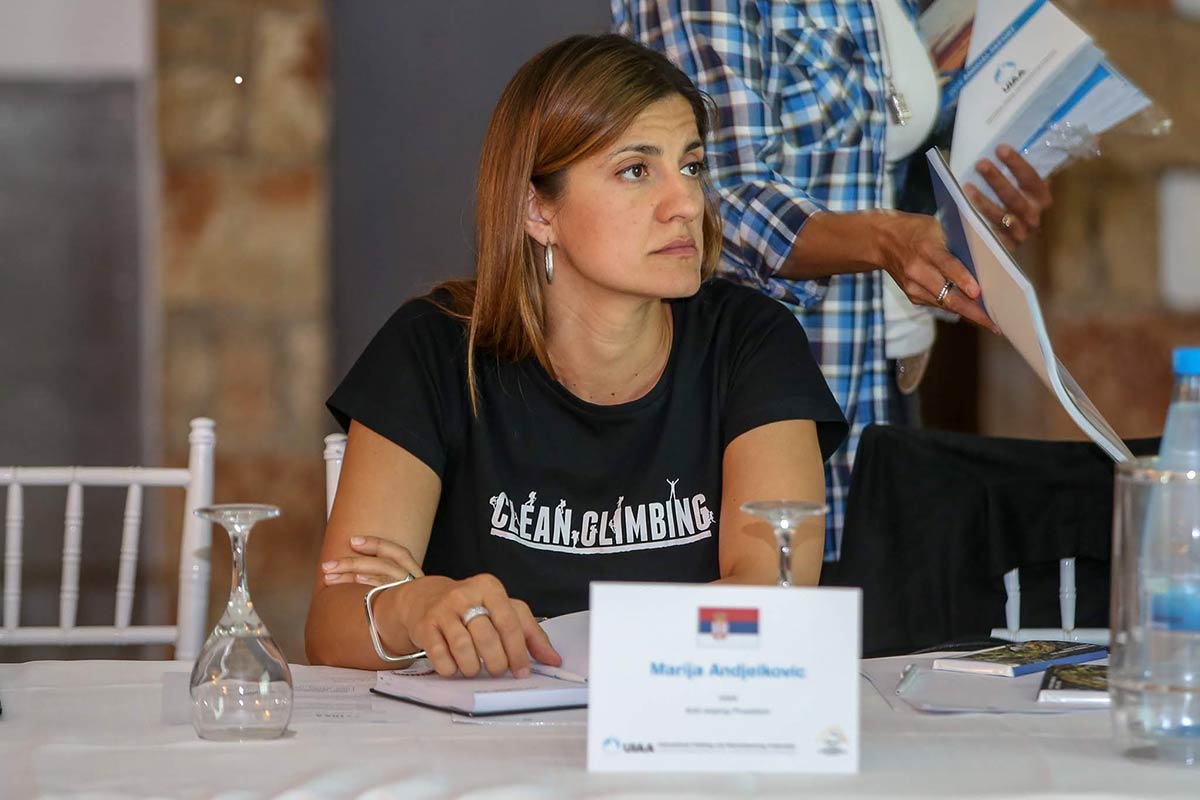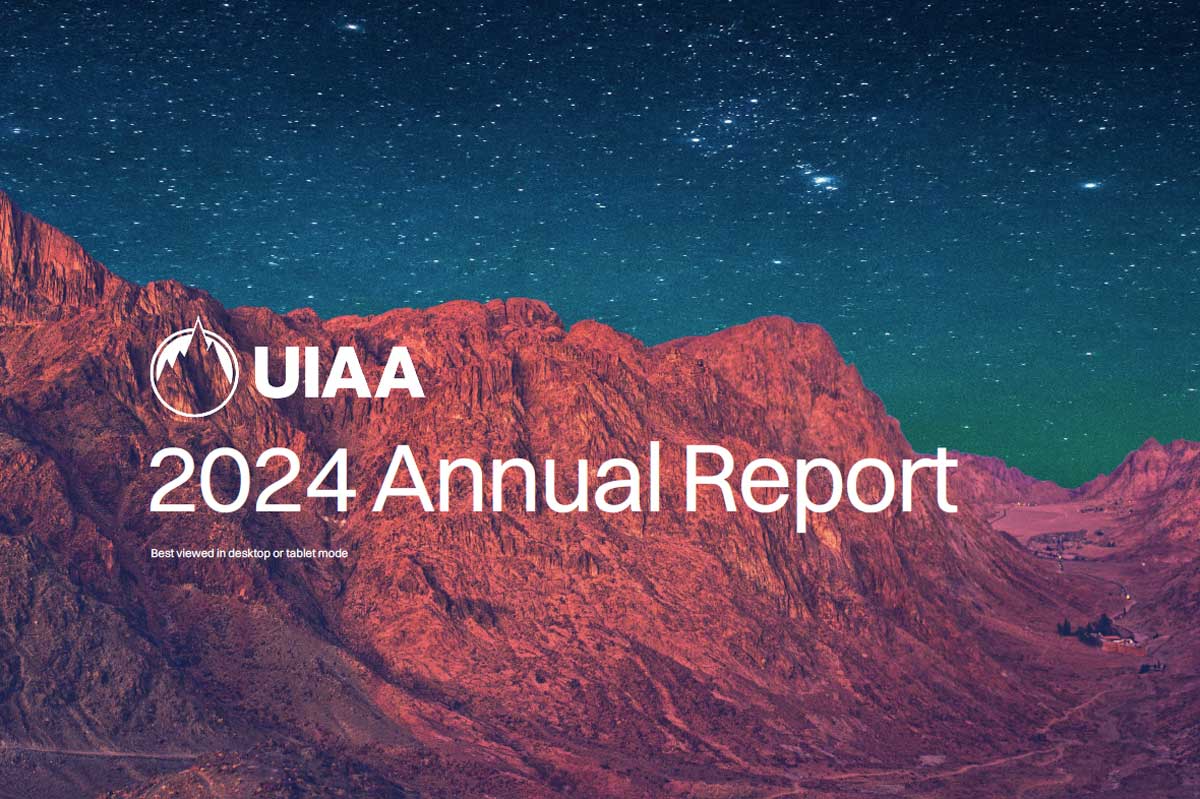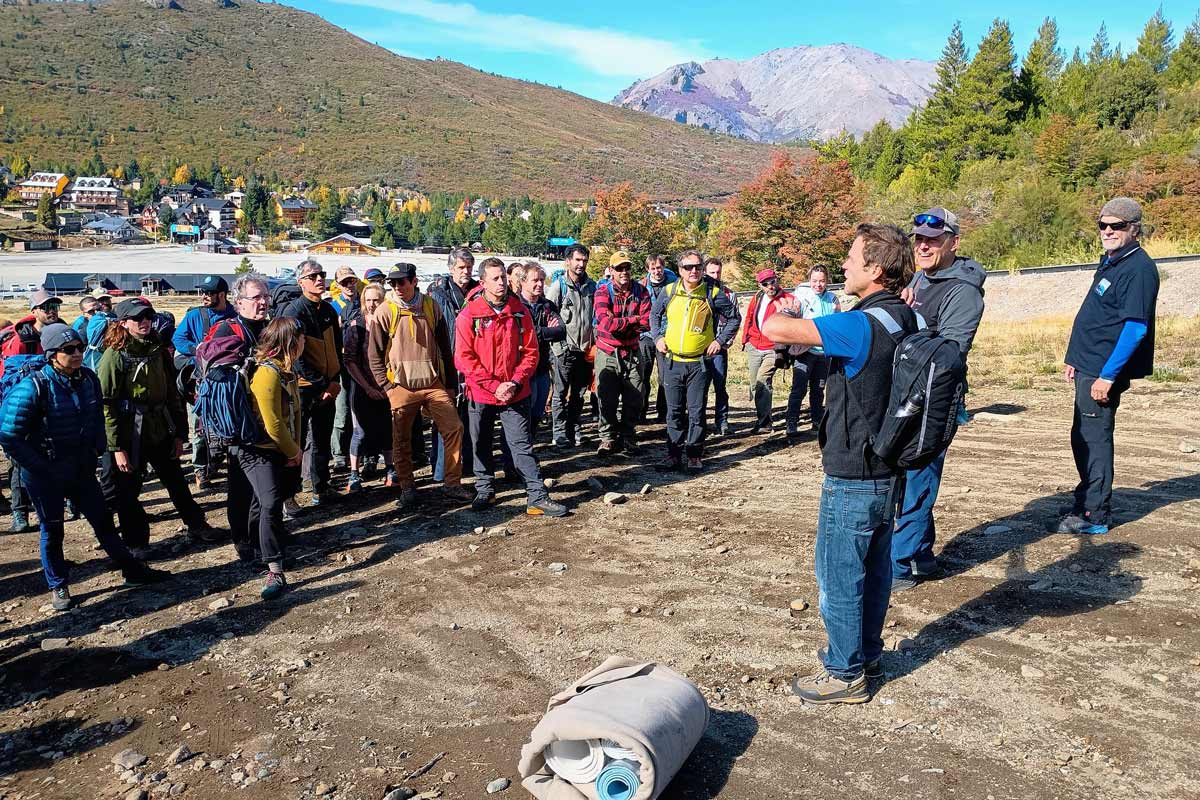Over 250 volunteers support the UIAA whether as part of its Executive Board, Management Committee or Commissions. Marija Andjelkovic (PSS, Serbia) has assisted the UIAA for over a decade, as a full member and now as President of its highly-active and respected Anti-Doping Commission. Marija shares the story of her work with the UIAA:
STARTING AT THE UIAA
My relationship with the UIAA commenced thanks to my colleague Dr Nenad Dikic (former UIAA Anti-Doping Commission President). He gradually integrated me into the work of the Commission. First, I started to work as a Doping Control Officer, and at that time, I was in charge of the “whereabouts” form for out-of-competition testing. Later I was responsible for Therapeutical Use Exemptions (TUEs) in a situation when athletes needed to use medication from the prohibited doping list. Finally, in 2017, I was privileged to become President of the UIAA Anti-Doping Commission, working with Dr Dikic and Borja Oses, a member of the Commission from its creation.
EXPERTISE IN DOPING AND SPORTS NUTRITION
Around the same time as joining the UIAA, I finished my studies at the University of Medicine in Belgrade. I began to work in the Anti-Doping Agency of Serbia in 2008, and very quickly, in addition to the subject of doping, my narrow fields of interest began to be sports nutrition and supplementation. Ten years ago, I received an International Olympic Committee Diploma in Sports Nutrition and started my specialisation in Clinical Pharmacology at the Faculty of Medicine in Belgrade. My Ph.D. was in a section of experimental physiology and sports medicine.
As a head of the Centre for Sports Nutrition and Supplementation, I have experience in more than 200 sports nutrition and supplementation programmes with elite athletes. Thanks to my work in anti-doping, I had a chance to be part of most major sports competitions as a doping control officer at the Olympic and Paralympic Games in Rio, the European Games in Baku, the Olympic Games in London, and the Winter Olympic Games in Vancouver. I am also a UEFA Doping Control Officer and Doping Control Delegate at European Athletics.
THE WORLD OF MOUNTAINEERING
Before volunteering for the UIAA, I was familiar with its work as an international federation but not enough to realize how huge and popular mountaineering is in the world. The Anti-Doping Commission is part of the sports movement in UIAA, primarily within ice climbing and skyrunning (the ISF, is a Unit Member of the UIAA), helping UIAA to continue to be a recognized sports federation by International Olympic Committee. We are very proud that the World Anti-Doping Agency (WADA) acknowledges the quality of work within the AD Commission which also complies with the World Anti-Doping Code.
RELATIONSHIP WITH ICE CLIMBING
My work in the UIAA Anti-Doping Commission is mainly dedicated to planning the doping controls during UIAA Ice Climbing World Tour and conducting doping controls with my colleagues. That part of my role is exciting, going to competitions and watching all these incredible climbers. I still remember one of the first doping controls I conducted in Rabenstein, Italy and notifying athletes about doping tests to be held in temperatures of minus eighteen degrees! It was so cold that athletes could not even sign the doping control form. So we were all a little bit frozen. Later during all these years, I had a chance to travel to all UIAA Ice Climbing World Championships and build relationships with the best climbers, and because of all that, I consider myself privileged. Ice climbing is a beautiful sport, and I hope we will all be witnessing it one day becoming an Olympic competition.
Doping control by itself is one process that is an essential component of competitive sport, and all elite athletes know that. However, very often, the athlete is not so happy to spend their time in a doping station after the competition. Either they want to celebrate success with their family or be alone because they are sad about a disappointing result. In both cases, all of them want to be somewhere else. That is why all processes need to be friendly, smooth, and fast.
As a volunteer all these years, I can say only nice words about the athletes I meet. I have never had any unpleasant or unfriendly situation. On the contrary, all climbers were cooperative, interested in the process, and respected the idea of fair play and anti-doping.
PIONEERS IN EDUCATION
We are proud that the UIAA was one of the first international federations to organize an online anti doping education programme, which is accepted as mandatory for all climbers. Education, online or during competition, is essential in the anti-doping fight, and that is the future that WADA is aiming for. I am happy that the work of the Anti-Doping Commission is also dedicated to that and that working with my colleagues is an example that quality can come with goodwill and dedication to work.
BEING OUTDOORS
In my free time, I like to hike and climb, and I practice ahead of some events (going to some high peaks). I am a member of the mountaineering club “Avantura Team,” and with them, I have visited all the beautiful places in Serbia and nearby. Climbing and mountaineering are more my areas of a hobby than everyday professional engagement. With my friends and colleagues, I like to visit mountains and different landscapes, even those above 5000m. I am very proud of my latest climb – Ararat (5137m). But the one I enjoyed the most was Capanna Margherita (4556m). Visiting the Margherita Hut will stay in my mind as a beautiful place where science and high altitude meet to give the best results.
If I follow the excellent quote, “Volunteers do not necessarily have the time; they just have the heart.” (Elizabeth Andrew), I can say that UIAA won my heart all these years, and it will stay like that in the future.
To discover more about the UIAA’s work in anti-doping please click here. All photos, unless stated otherwise, credit: Marija Andjelkovic.
OTHER ARTICLES IN SERIES
#1 – Klara Dvorakova (Czech Republic)
#2 – Lionel Kiener (Switzerland)
#3 – Pierre Humblet (Belgium)
#4 – Nikolay Primerov (Russia/Switzerland)
#5 – Buddha Basynat (Nepal)
#6 – Harshwanti Bisht (India)
#7 – Juan Jesús Ibañez Martin (Spain)
#8 – Mrika Nikҫi (Kosovo/Albania)
#9 – Greg Moseley (South Africa)
#10 – Stephen Gladieux (United States)
#11 – Joop Spijker (Netherlands)



